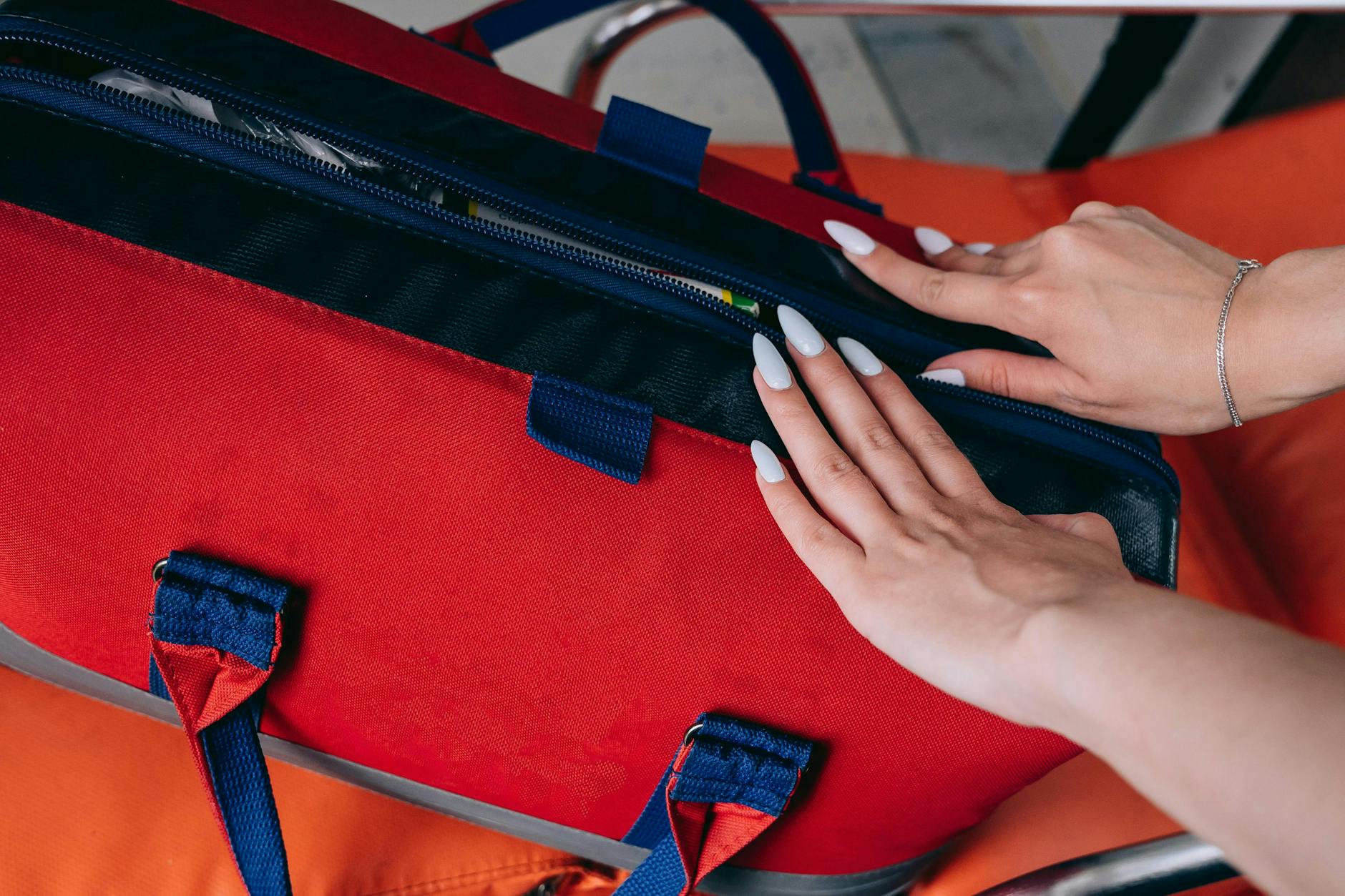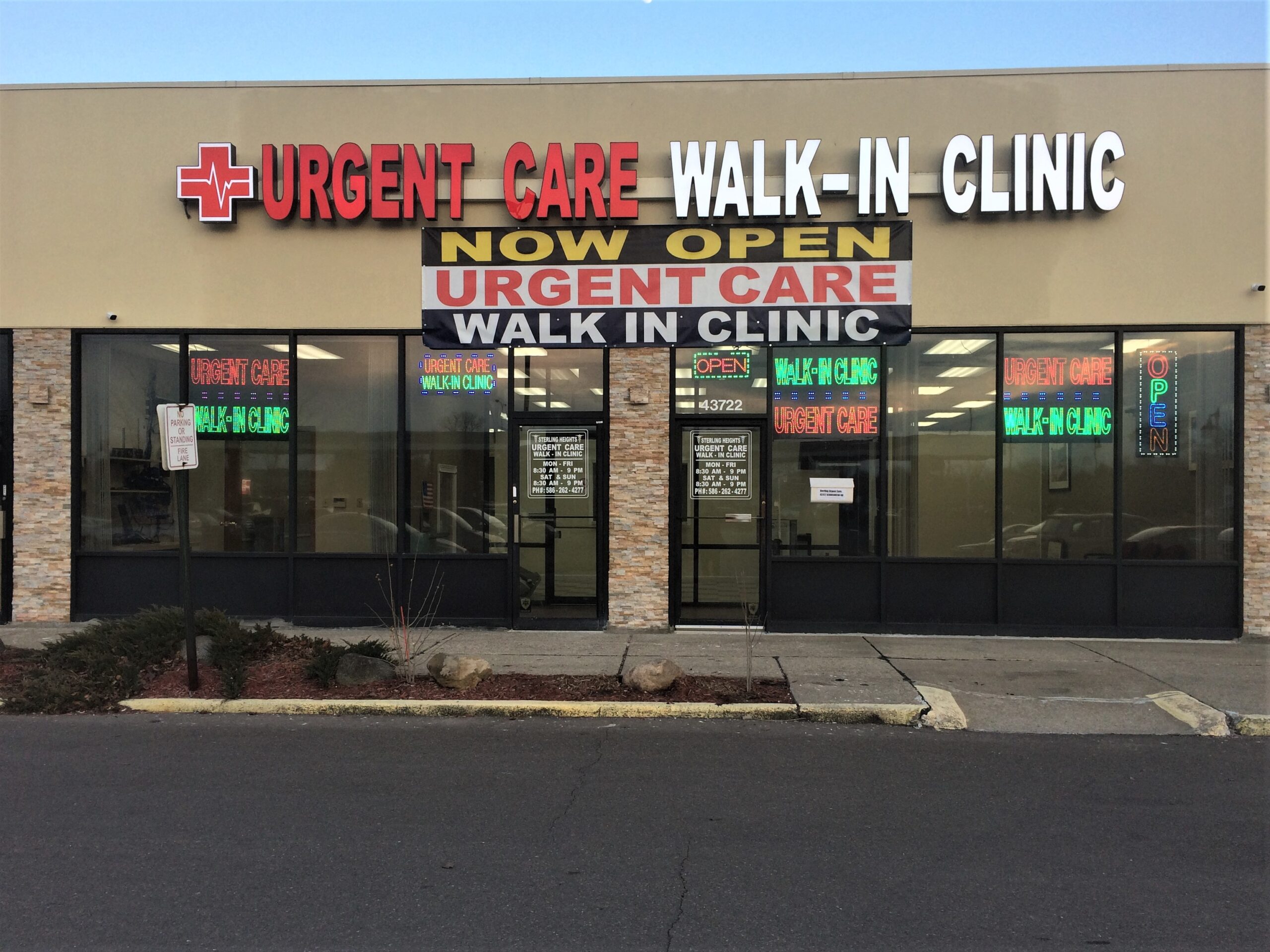In this article, we will explore the ins and outs of getting emergency medical help during the night. Not really sure why this matters, but it’s something we all should know, right? It’s not like we can just hit pause on life when the sun goes down. Emergencies don’t care about the time, so let’s dive into some important stuff.
The Importance of Knowing Emergency Numbers
It’s super crucial to know the emergency numbers in your area, especially at night. You never know when you might need it, and trust me, it’s not fun looking for them when you’re panicking. Seriously, who has time for that? So, make a list and stick it on your fridge or something.
- Emergency services: 911
- Poison Control: 1-800-222-1222
- Your local hospital’s number
Common Nighttime Emergencies
Some emergencies happen more often at night, like accidents or sudden illnesses. Maybe it’s just me, but I feel like people tend to be more reckless after dark, right? It’s like the night brings out the wild side in us.
Accidents and Injuries
Accidents can happen anywhere, anytime, but they seems to be more frequent at night. It’s like the universe is just waiting for you to trip over your own feet, you know? Especially when you’re trying to walk home after a long day.
- Car Accidents: Major concern during nighttime hours. People are tired, and maybe they shouldn’t be driving, but they do anyways. It’s a recipe for disaster, for sure.
- Falls and Fractures: Falls are another common injury you might encounter. Whether it’s due to poor lighting or just being clumsy, they can lead to serious issues. Ouch, right?
Medical Conditions That Flare Up at Night
Some medical conditions just loves to act up at night. It’s like they have a schedule or something. Seriously, who needs sleep when your body is throwing a party? It’s the worst.
How to Prepare for Nighttime Emergencies
Preparation is key! You don’t wanna be scrambling around like a headless chicken when something happens. A little planning goes a long way, trust me.
- Creating a First Aid Kit: Having a first aid kit handy is a must. You never know when you might need band-aids or antiseptic wipes. It’s like a safety net, but for your boo-boos.
- Keeping Important Documents Accessible: Important documents like medical history or insurance info should be easy to find. It’s not fun digging through piles of paper when you’re in a hurry. Seriously, who has time for that?
Finding Emergency Medical Services
Knowing where to find emergency medical services is essential. It’s not like you can just Google it when you’re in a crisis, right? Familiarizing yourself with local hospitals can save you time. Some might be closer than you think, but others can be a trek. Just make sure you know which ones are open at night!
- Local Hospitals: Know where they are!
- Urgent Care Centers: They are lifesavers for non-life-threatening issues. They’re usually open late, so if you have a minor emergency, they might be your best bet.
Staying Calm During an Emergency
Staying calm is easier said than done, but it’s super important. Panicking won’t help anyone, especially you. Take a deep breath, and remember you got this! Using breathing techniques can help you chill out. Inhale, exhale, repeat. It’s like a mantra, but for your lungs.
Contacting Medical Professionals
Don’t hesitate to call for help. Medical professionals are trained to handle emergencies, and they can guide you through the process. Just remember to listen to them!
Conclusion
In conclusion, knowing how to handle nighttime medical emergencies is crucial. It’s not just about you; it’s about everyone around you. So, be prepared, stay calm, and you’ll be fine! And hey, if all else fails, just remember to breathe.
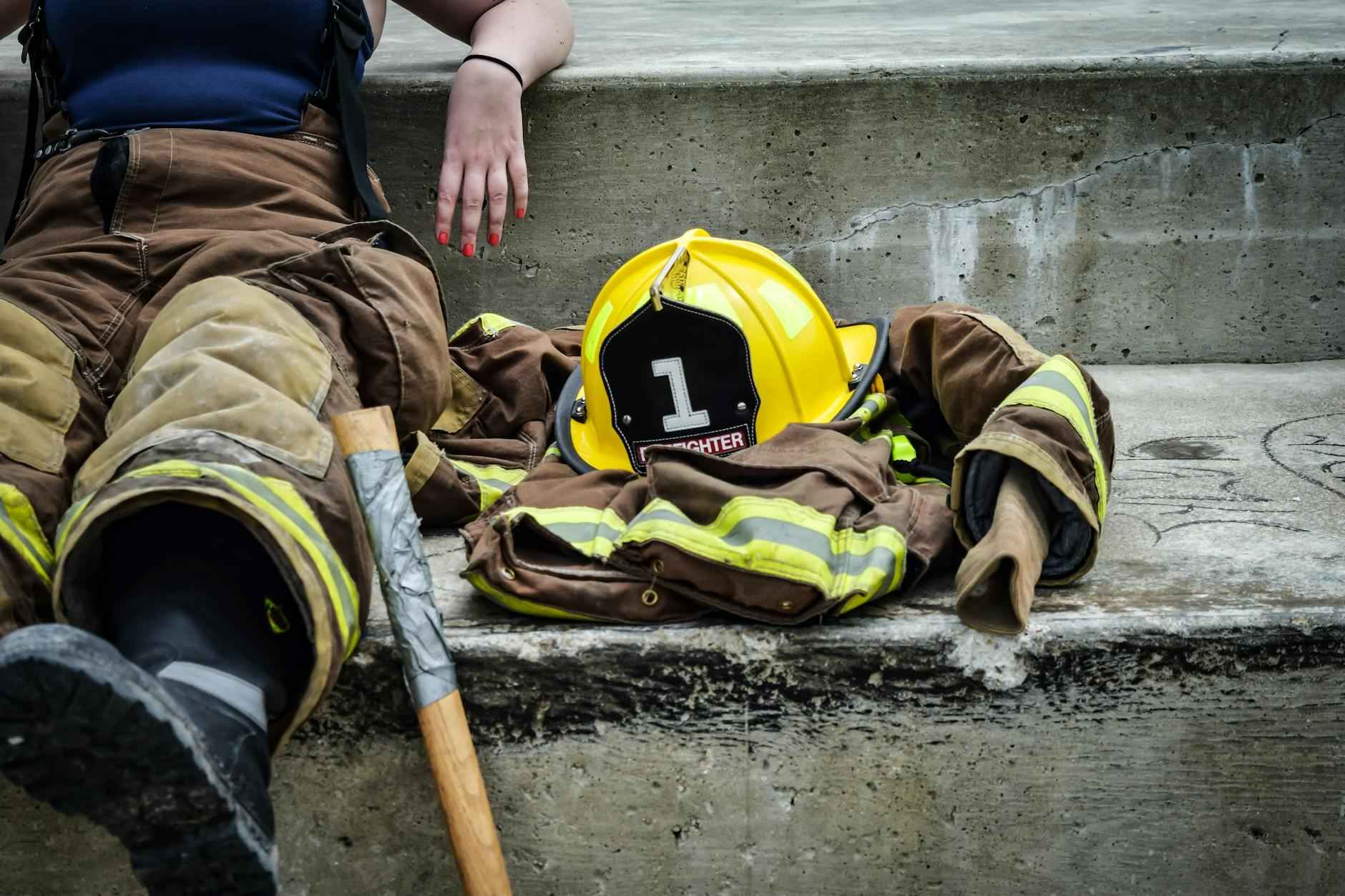
The Importance of Knowing Emergency Numbers
Your Go-To Resource for Emergency Medical Help at Night
In this article, we will explore the ins and outs of getting emergency medical help during the night. Not really sure why this matters, but it’s something we all should know, right?
It’s super crucial to know the emergency numbers in your area, especially at night. You never know when you might need it, and trust me, it’s not fun looking for them when you’re panicking. Seriously, it’s like searching for a needle in a haystack, only the haystack is on fire and you’re freaking out. So, do yourself a favor and memorize those numbers. It could save you a ton of stress.
Common Nighttime Emergencies
- Accidents and Injuries
- Medical Conditions That Flare Up at Night
Some emergencies happen more often at night, like accidents or sudden illnesses. Maybe it’s just me, but I feel like people tend to be more reckless after dark, right? Like, who thought it was a good idea to go skateboarding at 11 PM? Accidents can happen anywhere, anytime, but they seem to be more frequent at night. It’s like the universe is just waiting for you to trip over your own feet, you know?
Accidents and Injuries
Car accidents are a major concern during nighttime hours. People are tired, and maybe they shouldn’t be driving, but they do anyways. It’s a recipe for disaster, for sure. And don’t even get me started on falls and fractures. They happen way too often when it’s dark. Whether it’s due to poor lighting or just being clumsy, they can lead to serious issues. Ouch, right?
Medical Conditions That Flare Up at Night
Some medical conditions just love to act up at night. It’s like they have a schedule or something. Seriously, who needs sleep when your body is throwing a party? You might find yourself dealing with sudden asthma attacks or allergies that just won’t quit. So, knowing how to handle those situations is super important.
How to Prepare for Nighttime Emergencies
Preparation is key! You don’t want to be scrambling around like a headless chicken when something happens. A little planning goes a long way, trust me. Having a first aid kit handy is a must. You never know when you might need band-aids or antiseptic wipes. It’s like a safety net, but for your boo-boos.
Creating a First Aid Kit
- Band-aids
- Antiseptic wipes
- Pain relievers
Keeping important documents accessible is also a smart move. Important documents like medical history or insurance info should be easy to find. It’s not fun digging through piles of paper when you’re in a hurry. Seriously, who has time for that? It’s like looking for a lost sock in a laundry basket.
Finding Emergency Medical Services
Knowing where to find emergency medical services is essential. It’s not like you can just Google it when you’re in a crisis, right? Familiarizing yourself with local hospitals can save you time. Some might be closer than you think, but others can be a trek. Just make sure you know which ones are open at night!
Conclusion
In conclusion, knowing how to handle nighttime medical emergencies is crucial. It’s not just about you; it’s about everyone around you. So, be prepared, stay calm, and you’ll be fine! And remember, when in doubt, just call for help. You got this!
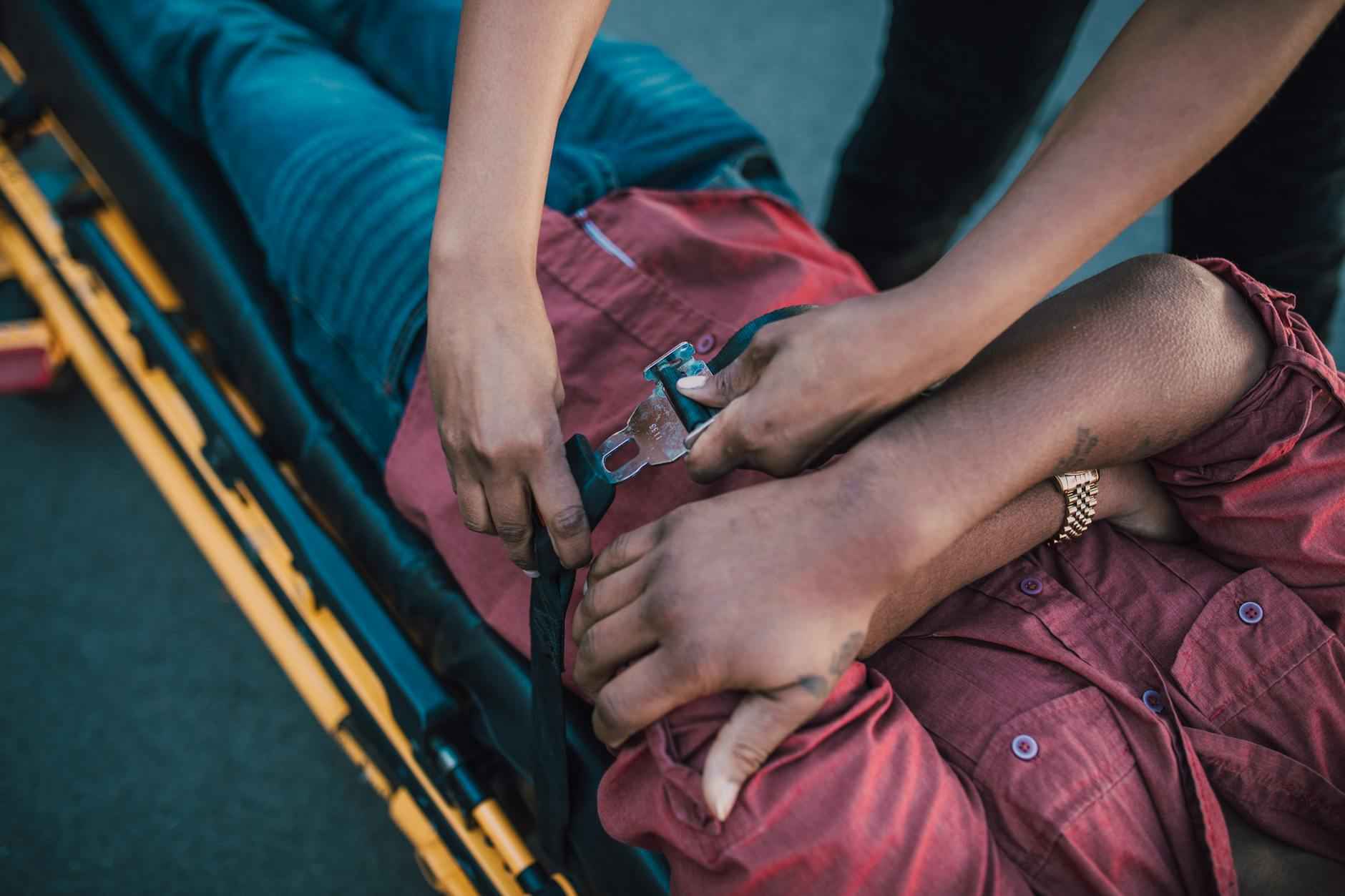
Common Nighttime Emergencies
Your Go-To Resource for Emergency Medical Help at Night
In this article, we will explore the ins and outs of getting emergency medical help during the night. Not really sure why this matters, but it’s something we all should know, right?
The Importance of Knowing Emergency Numbers
It’s super crucial to know the emergency numbers in your area, especially at night. You never know when you might need it, and trust me, it’s not fun looking for them when you’re panicking.
Some emergencies happen more often at night, like accidents or sudden illnesses. Maybe it’s just me, but I feel like people tend to be more reckless after dark, right? It’s like the night brings out the wild side of everyone. Seriously, who goes out running with scissors at 2 AM? Well, maybe not that extreme, but you get my point.
- Accidents and Injuries
- Car Accidents
- Falls and Fractures
Accidents can happen anywhere, anytime, but they seems to be more frequent at night. It’s like the universe is just waiting for you to trip over your own feet, you know? You might be walking your dog, and suddenly, boom! You’re on the ground.
Car accidents are a major concern during nighttime hours. People are tired, and maybe they shouldn’t be driving, but they do anyways. It’s a recipe for disaster, for sure. I mean, who hasn’t seen a car swerving like it’s auditioning for a dance show?
Falls are another common injury you might encounter. Whether it’s due to poor lighting or just being clumsy, they can lead to serious issues. Ouch, right? You could be just trying to make a midnight snack, and bam! You’re on the floor.
Medical Conditions That Flare Up at Night
Some medical conditions just love to act up at night. It’s like they have a schedule or something. Seriously, who needs sleep when your body is throwing a party? I mean, I thought my allergies were supposed to be a day thing, but no, they decided to crash the night too!
How to Prepare for Nighttime Emergencies
Preparation is key! You don’t want to be scrambling around like a headless chicken when something happens. A little planning goes a long way, trust me.
- Creating a First Aid Kit
- Keeping Important Documents Accessible
Having a first aid kit handy is a must. You never know when you might need band-aids or antiseptic wipes. It’s like a safety net, but for your boo-boos. Don’t forget the ice pack, because who doesn’t love a good ice pack?
Important documents like medical history or insurance info should be easy to find. It’s not fun digging through piles of paper when you’re in a hurry. Seriously, who has time for that? You could be bleeding out, and here you are, flipping through papers like it’s a library!
Finding Emergency Medical Services
Knowing where to find emergency medical services is essential. It’s not like you can just Google it when you’re in a crisis, right? You gotta have that info on hand, like a superhero with a secret weapon!
- Local Hospitals
- Urgent Care Centers
Familiarizing yourself with local hospitals can save you time. Some might be closer than you think, but others can be a trek. Just make sure you know which ones are open at night! Because who wants to drive 30 minutes when you’re in pain?
Urgent care centers can be lifesavers for non-life-threatening issues. They’re usually open late, so if you have a minor emergency, they might be your best bet. Just don’t go there for a hangnail, okay?
Staying Calm During an Emergency
Staying calm is easier said than done, but it’s super important. Panicking won’t help anyone, especially you. Take a deep breath, and remember you got this!
- Breathing Techniques
- Contacting Medical Professionals
Using breathing techniques can help you chill out. Inhale, exhale, repeat. It’s like a mantra, but for your lungs. Just don’t pass out while doing it!
Don’t hesitate to call for help. Medical professionals are trained to handle emergencies, and they can guide you through the process. Just remember to listen to them! They’re not just there for decoration.
Conclusion
In conclusion, knowing how to handle nighttime medical emergencies is crucial. It’s not just about you; it’s about everyone around you. So, be prepared, stay calm, and you’ll be fine! Just remember, the night is dark and full of terrors, but with a little knowledge, you can face it head-on!
Accidents and Injuries
Accidents can happen anywhere, anytime, but they seem to be more frequent at night. It’s like the universe is just waiting for you to trip over your own feet, you know? Nighttime accidents are a real concern, and not just because the lights are out and people are stumbling around. It’s like when the sun goes down, common sense takes a vacation.
Maybe it’s just me, but I feel like people become a little more reckless after dark. I mean, who hasn’t seen someone trying to walk straight after a couple of drinks, right? Alcohol-related injuries are a biggie, and they seem to spike when the sun sets. It’s like some sort of weird tradition.
- Car accidents are a major concern during nighttime hours. People are tired, and maybe they shouldn’t be driving, but they do anyways. It’s a recipe for disaster, for sure.
- Then there’s the whole issue of poor visibility. You can’t really see that pothole until you’re practically in it, and by then, it’s too late.
- Falls are another common injury you might encounter. Whether it’s due to poor lighting or just being clumsy, they can lead to serious issues. Ouch, right?
Also, let’s not forget about those pesky medical conditions that love to flare up at night. Like, who needs sleep when your body is throwing a party? Seriously, it’s like some of these issues have a schedule. Asthma attacks and heart problems seem to love the night shift. You could be chilling, and then BAM! You’re gasping for air or clutching your chest. Not fun at all.
So, what can you do to kinda prepare for these nighttime mishaps? Well, it’s all about being ready. You don’t want to be scrambling around like a headless chicken when something happens. A little planning goes a long way, trust me.
| Preparation Tips | Description |
|---|---|
| Create a First Aid Kit | Having a first aid kit handy is a must. You never know when you might need band-aids or antiseptic wipes. It’s like a safety net, but for your boo-boos. |
| Keep Important Documents Accessible | Important documents like medical history or insurance info should be easy to find. It’s not fun digging through piles of paper when you’re in a hurry. Seriously, who has time for that? |
Knowing where to find emergency medical services is also essential. It’s not like you can just Google it when you’re in a crisis, right? Familiarizing yourself with local hospitals can save you time. Some might be closer than you think, but others can be a trek. Just make sure you know which ones are open at night!
In conclusion, accidents and injuries at night can be a pretty big deal. It’s not just about you, it’s about everyone around you. So, be prepared, stay calm, and you’ll be fine!
Car Accidents
are a significant issue during nighttime hours. It’s like people think they can just drive home after a long day, even when they’re dead tired. I mean, who hasn’t been there, right? But seriously, when the sun goes down, it’s like a whole different world out there on the roads. People are more likely to make mistakes, and that’s where the trouble starts.
First off, let’s talk about fatigue. When you’re driving at night, your body is basically telling you, “Hey, it’s time to sleep!” But instead of listening, people decide to power through. It’s not just a bad idea; it’s downright dangerous. Studies show that drowsy driving can be as risky as drunk driving, which is kinda scary when you think about it. You’re not just risking your life, but also the lives of others on the road.
Next up is poor visibility. At night, it’s harder to see what’s ahead. Streetlights are often few and far between, and those dark roads can be a real nightmare. You might miss seeing a stop sign, or worse, a pedestrian. And let’s be honest, not everyone follows the rules of the road after dark. Some folks think they’re invincible, speeding like they’re in a race. It’s like they forget that a car is a weapon if not handled properly.
- Common Causes of Nighttime Accidents:
- Drowsy driving
- Poor visibility
- Impaired drivers
- Distracted driving
Now, let’s not forget about impaired driving. Alcohol and drugs can really mess with your judgment, and it’s a common problem at night. It’s like people think they’re invincible after a few drinks. But, spoiler alert: they’re not. The consequences can be severe, and it’s not just a slap on the wrist. Lives can be changed forever in an instant.
Also, there’s this thing called distractions. At night, people tend to use their phones more, thinking it’s no big deal. But let me tell you, texting while driving is like playing with fire. You think you can handle it, but you’re just one second away from a disaster. And that’s not even an exaggeration.
So, what can we do about all these nighttime accidents? Well, first, if you’re tired, just don’t drive. Call a friend, take a cab, or use a rideshare service. It’s really not worth the risk. Secondly, be aware of your surroundings. Keep your eyes peeled for anything unusual, and always follow the speed limits. And if you see someone driving erratically, just give them a wide berth. Better safe than sorry, right?
In conclusion, nighttime driving can be a recipe for disaster if you’re not careful. It’s crucial to be aware of the risks, and take the necessary precautions. So, next time you think about hitting the road after dark, maybe think twice. Your life, and the lives of others depend on it. Seriously, let’s not make the roads a more dangerous place than they already are.
Falls and Fractures
are like the uninvited guests at a party – they just show up when you least expect them. Seriously, it’s like every time I turn around, someone’s tripping over their own feet or slipping on a wet floor. Not really sure why this matters, but it’s a big deal, especially at night when visibility is low and accidents waiting to happen. I mean, who hasn’t had a little tumble, right? It’s just part of life, or so I thought.
When you think about it, the reasons behind these falls can be pretty varied. Maybe it’s poor lighting, or perhaps it’s just that clumsiness runs in the family. Whatever the case, falls can lead to some serious injuries like fractures or sprains. And trust me, a broken bone is not something you want to deal with after a late-night snack run. Ouch, right?
| Common Causes of Falls | Potential Injuries |
|---|---|
| Poor Lighting | Fractures |
| Slippery Floors | Sprains |
| Cluttered Walkways | Bruises |
| Uneven Surfaces | Head Injuries |
So, let’s break it down a bit. First off, poor lighting is like a recipe for disaster. If you can’t see where you’re going, you might as well be walking in a minefield. And then there’s the good ol’ slippery floor. You know, the kind that always seems to catch you off guard? One minute you’re strutting your stuff, and the next minute you’re on the ground wondering what just happened. It’s like life’s little prank, really.
Now, I can’t forget to mention those cluttered walkways. Seriously, if you’ve got shoes, bags, and who knows what else lying around, you’re just asking for trouble. It’s like a game of “how many things can I trip over before I finally fall?” And let’s not even get started on uneven surfaces. One moment you’re walking, and the next, you’re in a free fall. It’s like your feet just decided to betray you.
But hey, it’s not all doom and gloom! There are ways to prevent these falls and fractures. For starters, keeping your living space tidy can help a ton. If you can see where you’re walking, you’re less likely to trip over something random. And investing in some good lighting can make a world of difference. Seriously, those nightlights are not just for kids!
- Always check the floor for spills.
- Use non-slip mats in slippery areas.
- Keep pathways clear of clutter.
- Consider using a cane or walker if needed.
In conclusion, falls and fractures are just part of life, but they don’t have to be. By taking some simple precautions, you can avoid becoming a statistic. So, next time you’re walking around at night, just remember: watch your step, keep it tidy, and maybe invest in a flashlight. You’ll thank yourself later!
Medical Conditions That Flare Up at Night
So, you ever notice how some medical conditions just love to act up at night? It’s like they got a secret schedule or something, and they just can’t wait to ruin your sleep. Seriously, who needs sleep when your body is throwing a party? Not really sure why this matters, but it’s something we all should be aware of, right?
First off, let’s talk about asthma. It’s like the sneaky little gremlin that waits until you’re all cozy in bed to remind you that it exists. You might be thinking, “Oh, I’m fine,” and then BAM! You’re gasping for air like a fish outta water. It’s not a fun time, trust me.
Acid reflux is another nighttime troublemaker. You lay down, and suddenly it feels like a volcano is erupting in your chest. It’s like, “Hello, can I just get some peace?” Eating too close to bedtime is a big no-no, but who can resist those late-night snacks? Not me!
- Sleep apnea is also a big deal. You might think you’re sleeping soundly, but your partner is probably nudging you every few minutes because you sound like a chainsaw. It’s not cute.
- Joint pain can flare up too. You know, the kind that makes you feel like you’re 80 years old when you’re really just in your 20s. It’s like your body is playing a cruel joke on you.
Now, don’t even get me started on insomnia. It’s like the ultimate villain of the night. You lay there, staring at the ceiling, counting sheep that just refuse to jump over the fence. It’s frustrating, to say the least. Maybe it’s just me, but I feel like the more I try to sleep, the more awake I become. Isn’t that ironic?
| Condition | Symptoms | Tips for Relief |
|---|---|---|
| Asthma | Shortness of breath, wheezing | Keep inhaler nearby, avoid allergens |
| Acid Reflux | Heartburn, regurgitation | Avoid heavy meals before bed, elevate head |
| Sleep Apnea | Loud snoring, gasping | Consult a doctor, consider CPAP |
| Joint Pain | Aching, stiffness | Warm compress, gentle stretching |
In conclusion, knowing about these medical conditions that flare up at night is super important. It’s not just about you; it’s about everyone around you too. So, be prepared and maybe keep a list of what to do if things go south. You never know when you might need it. Just remember, when your body decides to throw a nighttime party, you gotta be ready to crash it!
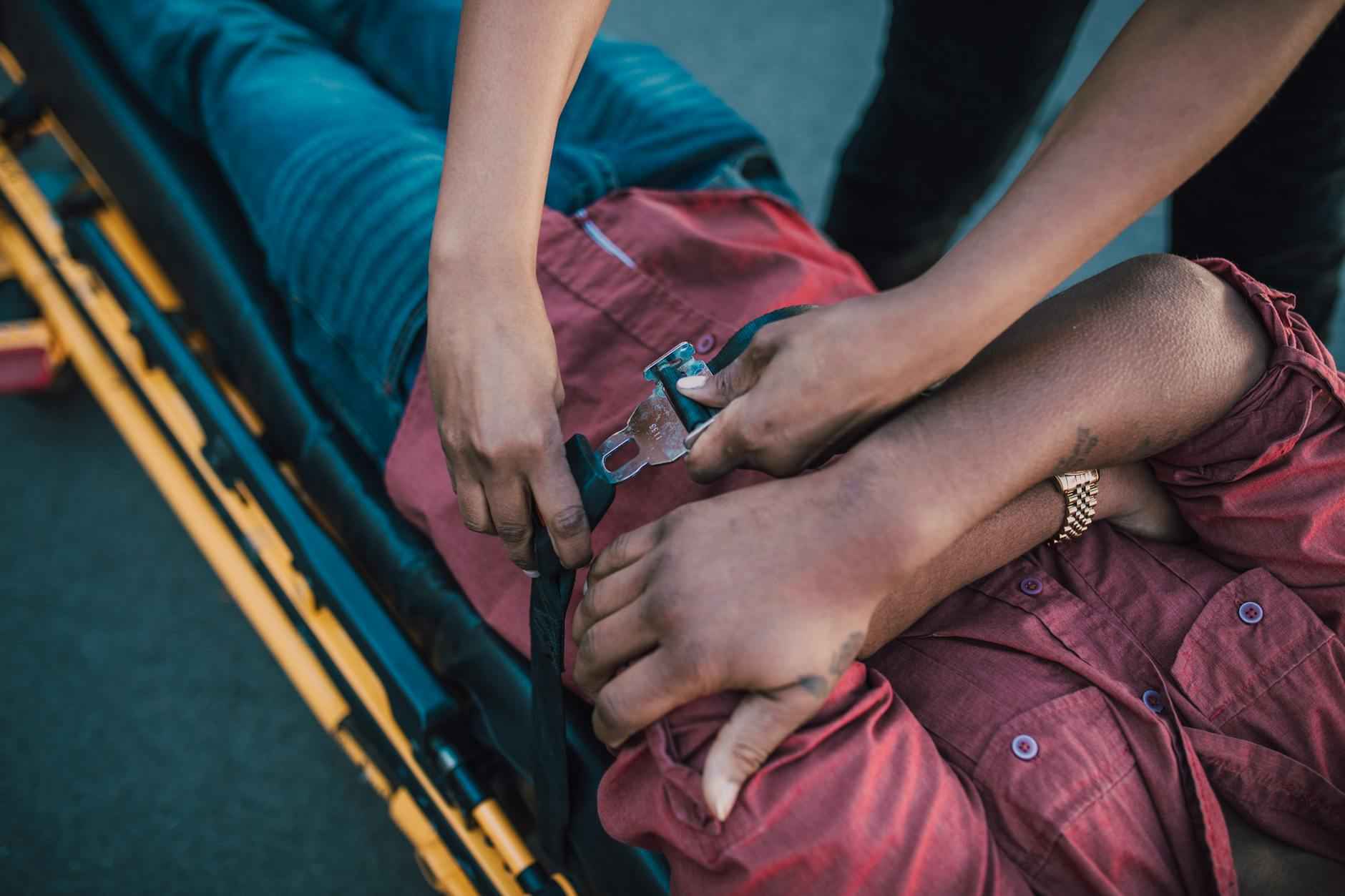
How to Prepare for Nighttime Emergencies
So, let’s be real for a sec. Preparation is key! You don’t wanna be running around like a headless chicken when something goes wrong, right? A bit of planning can make a world of difference, trust me on this one. It’s like they say, “Failing to prepare is preparing to fail.” Or something like that. Anyway, here’s some stuff you can do to get ready for those late-night surprises.
- Create a First Aid Kit – Seriously, having a first aid kit handy is like having a safety blanket for emergencies. You never know when you might need some band-aids or antiseptic wipes. Just toss in some gauze and maybe a pain reliever, and you’re golden.
- Know Your Emergency Numbers – This one’s super crucial. You gotta memorize the emergency numbers in your area. It’s not fun looking for them when you’re freaking out. Like, do you really wanna waste time Googling “what’s the number for 911?”
- Keep Important Documents Accessible – Important documents like your medical history or insurance info should be easy to find. I mean, who has time to dig through piles of paper when you’re in a rush? Not me, that’s for sure!
Now, let’s talk about some common nighttime emergencies that can pop up. You know, the kind that makes your heart race and your palms sweat.
| Type of Emergency | Possible Causes | What to Do |
|---|---|---|
| Accidents | Slips, trips, and falls | Assess the situation, call for help if needed |
| Medical Conditions | Asthma attacks, allergic reactions | Use inhalers or EpiPens if available, call emergency services |
| Car Accidents | Tired drivers, poor visibility | Check for injuries, call 911 |
Okay, so here’s the deal. When something goes down at night, staying calm is like, super important. I mean, panicking won’t help anyone, especially you. Take a deep breath and remind yourself that you got this! Maybe you can try some breathing techniques, like inhaling and exhaling slowly. It’s like a mantra, but for your lungs.
And don’t forget, if you’re in a pickle, don’t hesitate to call for help. Medical professionals are trained for this stuff, and they can guide you through the process. Just remember to listen to them! Sometimes it’s hard to keep your cool, but you gotta try.
In conclusion, knowing how to handle nighttime emergencies is crucial. It’s not just about you; it’s about everyone around you. So, be prepared, stay calm, and you’ll be fine! And who knows, maybe you’ll even impress someone with your mad emergency skills. Or not. But hey, at least you tried!
Creating a First Aid Kit
is like, super important, right? I mean, you never know when you might need it, and trust me, it’s not fun to be caught off guard. Having a first aid kit handy is a must, like seriously! It’s like a safety net, but for your boo-boos. You can never be too prepared, especially when accidents happen when you least expect them, like a surprise party but not the fun kind. So let’s dive into how to put together an awesome first aid kit that might just save the day!
- Band-aids of all sizes: You gotta have these! They come in handy for everything from paper cuts to, well, more serious stuff. You can never have too many!
- Antiseptic wipes: These are crucial for cleaning cuts and scrapes. I mean, who wants to deal with an infection? Not me, that’s for sure!
- Gauze and tape: For those times when a band-aid just won’t cut it. You might think you won’t need it, but trust me, it’s better to have it and not need it than need it and not have it.
- Scissors: You know, for cutting tape, gauze, or even that annoying packaging that just won’t budge. Seriously, who thought packing things so tightly was a good idea?
- Instant cold packs: These are lifesavers for sprains or bruises. Just activate and apply – easy peasy!
Now, let’s not forget about medications. You should include some basic over-the-counter stuff like pain relievers (like ibuprofen or acetaminophen), antihistamines for allergies, and maybe even some antacids because, let’s be real, we all have those moments after eating too much pizza.
And hey, don’t forget to check the expiration dates on everything! It’s like a scavenger hunt, but instead of treasure, you find expired stuff that you can’t use. Not really sure why this matters, but expired band-aids aren’t gonna help you when you need them, right?
Once you got all your supplies, it’s time to find a container. It could be a fancy box or just a simple zip-lock bag. The key is to keep everything organized so you’re not digging around like a chicken looking for a lost egg when an emergency strikes. You can even label the sections if you’re feeling extra fancy!
Lastly, make sure to keep your first aid kit in a spot that’s easy to reach. I mean, what’s the point of having it if you can’t find it when you need it? Maybe it’s just me, but I feel like everyone has that one drawer in their house that’s a black hole for useful stuff. Don’t let your first aid kit be that!
In conclusion, creating a first aid kit is not just about throwing stuff in a box. It’s about being prepared for life’s little surprises. So gather your supplies, keep it organized, and you’ll be ready to tackle whatever comes your way. Because, let’s face it, life can be unpredictable, and having a well-stocked first aid kit can make all the difference when accidents happen. So go ahead, start assembling your kit today!
Keeping Important Documents Accessible
is like, super important when you’re dealing with a medical emergency, especially at night. Seriously, it’s not fun at all to be rummaging through a mountain of papers when every second counts. I mean, who even has time for that, right? It’s like trying to find a needle in a haystack, but the haystack is your messy desk and the needle is your life-saving info!
First things first, you gotta have a designated spot for all your critical documents. Think about it—if you had to find your medical history or insurance info in a hurry, where would you look? If you said “the pile of papers on the kitchen table,” then we need to talk. You should really consider organizing these papers into a folder or binder that’s easy to grab. Like, I don’t know, maybe even color-code them? Just a thought!
- Medical History: This should include any allergies, past surgeries, and chronic conditions.
- Insurance Information: Make sure you have your policy number and contact info for your provider.
- Emergency Contacts: List family members or friends who can be reached quickly.
Also, don’t forget to keep these documents updated! I mean, it’s like, super annoying to find out that your info is outdated when you actually need it. Maybe it’s just me, but I feel like we all have that one friend who never updates their contact info. So, set a reminder on your phone or something to check every six months or so. It’s worth it, trust me!
Now, let’s talk about accessibility. You don’t want to be digging through a locked drawer when you need to access your important documents. Keep them in a place that’s easy to reach, but not so easy that anyone can just walk in and grab them. Maybe a fireproof box that you can quickly open? That way, you’re keeping your info safe but still accessible when you need it.
| Document Type | Location | Update Frequency |
|---|---|---|
| Medical History | Binder in Kitchen | Every 6 months |
| Insurance Info | Fireproof Box | Annually |
| Emergency Contacts | Phone Contacts | As Needed |
And here’s a pro tip: make digital copies of everything. Seriously, it’s 2023! You can store them in the cloud or on your phone. Just make sure you have a backup in case something happens to the physical copies. You never know when disaster might strike, right?
In conclusion, keeping your important documents accessible is not just a good idea, it’s essential. You don’t want to be that person who’s scrambling when the chips are down. So, take a little time to get organized now, and you’ll thank yourself later. You got this!
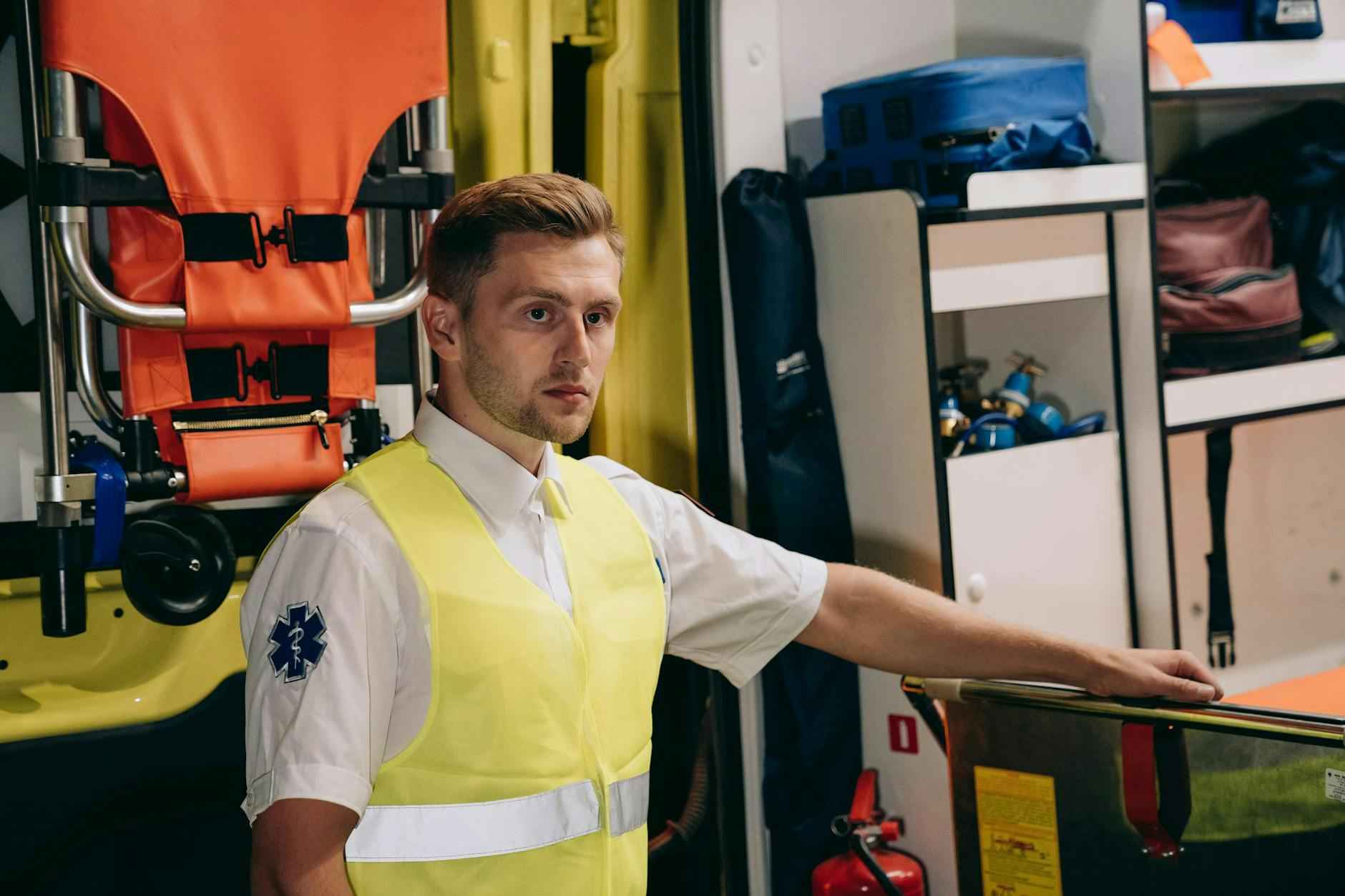
Finding Emergency Medical Services
is like, super important, you know? It’s not like you can just whip out your phone and Google it when you’re in the middle of a crisis. I mean, who has time for that? So, let’s dive into why knowing where to go for help is crucial, especially when the sun goes down.
First off, you should probably know your local emergency numbers. It’s like, the first thing you should memorize, right? You never know when you might need to call for help, and trust me, it’s not fun scrambling to find those numbers when your heart’s racing and your mind’s going a million miles an hour.
- 911 – This is the go-to number for all emergencies in the U.S.
- Your local hospital’s direct number – Gotta have it saved somewhere!
- Poison Control – This is often overlooked but super important.
Now, let’s talk about some common nighttime emergencies. Maybe it’s just me, but I feel like accidents happen more often when it’s dark outside. Like, is there something about nighttime that makes people forget how to walk or drive? Seriously, it’s like the universe is waiting to trip you up.
| Type of Emergency | Common Causes |
|---|---|
| Car Accidents | Tired drivers, poor visibility |
| Falls | Poor lighting, clumsiness |
| Medical Conditions | Nighttime flare-ups |
So, when it comes to , knowing where your local hospitals are can save you a ton of time. Some might be closer than you think, but others could be way out of the way. Just make sure you know which ones are open at night! It’s like, you don’t wanna be driving around aimlessly when you should be getting help.
And don’t forget about urgent care centers. They can be lifesavers for those non-life-threatening issues. Usually open late, they might be your best bet for those minor emergencies. You know, like when you stub your toe and it’s not broken but you’re still, like, in serious pain.
Now, here’s the kicker: staying calm during an emergency is super important. I know, easier said than done, right? Panicking won’t help anyone, especially you. So, take a deep breath and remember that you got this! Maybe try some breathing techniques, like inhaling and exhaling slowly. It’s like a mantra, but for your lungs.
And don’t hesitate to call for help. Seriously, medical professionals are trained to handle emergencies, and they can guide you through the process. Just remember to listen to them! They know what they’re doing, unlike me when I tried to bake a cake and ended up with a burnt mess.
In conclusion, knowing how to find emergency medical services is crucial. It’s not just about you; it’s about everyone around you. So, be prepared, stay calm, and you’ll be fine! And hey, maybe even keep a list of important numbers handy, just in case.
Local Hospitals
Your Go-To Resource for Emergency Medical Help at Night
In this article, we will explore the ins and outs of getting emergency medical help during the night. Not really sure why this matters, but it’s something we all should know, right?
The Importance of Knowing Emergency Numbers
It’s super crucial to know the emergency numbers in your area, especially at night. You never know when you might need it, and trust me, it’s not fun looking for them when you’re panicking.
Common Nighttime Emergencies
Some emergencies happen more often at night, like accidents or sudden illnesses. Maybe it’s just me, but I feel like people tend to be more reckless after dark, right?
Accidents and Injuries
Accidents can happen anywhere, anytime, but they seems to be more frequent at night. It’s like the universe is just waiting for you to trip over your own feet, you know?
- Car Accidents: Car accidents are a major concern during nighttime hours. People are tired, and maybe they shouldn’t be driving, but they do anyways. It’s a recipe for disaster, for sure.
- Falls and Fractures: Falls are another common injury you might encounter. Whether it’s due to poor lighting or just being clumsy, they can lead to serious issues. Ouch, right?
Medical Conditions That Flare Up at Night
Some medical conditions just love to act up at night. It’s like they have a schedule or something. Seriously, who needs sleep when your body is throwing a party?
How to Prepare for Nighttime Emergencies
Preparation is key! You don’t want to be scrambling around like a headless chicken when something happens. A little planning goes a long way, trust me.
Creating a First Aid Kit
Having a first aid kit handy is a must. You never know when you might need band-aids or antiseptic wipes. It’s like a safety net, but for your boo-boos.
Keeping Important Documents Accessible
Important documents like medical history or insurance info should be easy to find. It’s not fun digging through piles of paper when you’re in a hurry. Seriously, who has time for that?
Finding Emergency Medical Services
Knowing where to find emergency medical services is essential. It’s not like you can just Google it when you’re in a crisis, right?
Familiarizing yourself with can save you time. Some might be closer than you think, but others can be a trek. Just make sure you know which ones are open at night! I mean, what if you get into a situation where you need immediate help? You don’t wanna be driving around clueless, searching for a hospital that’s closed. It’s like searching for a needle in a haystack, but even worse!
Urgent Care Centers
Urgent care centers can be lifesavers for non-life-threatening issues. They’re usually open late, so if you have a minor emergency, they might be your best bet. Just don’t go there for a hangnail, okay?
Staying Calm During an Emergency
Staying calm is easier said than done, but it’s super important. Panicking won’t help anyone, especially you. Take a deep breath, and remember you got this!
Breathing Techniques
Using breathing techniques can help you chill out. Inhale, exhale, repeat. It’s like a mantra, but for your lungs.
Contacting Medical Professionals
Don’t hesitate to call for help. Medical professionals are trained to handle emergencies, and they can guide you through the process. Just remember to listen to them!
Conclusion
In conclusion, knowing how to handle nighttime medical emergencies is crucial. It’s not just about you; it’s about everyone around you. So, be prepared, stay calm, and you’ll be fine!
Urgent Care Centers
are like those superheroes we didn’t know we needed, especially when it comes to non-life-threatening issues. They’re usually open late, which is super convenient because, let’s face it, who wants to deal with a medical issue during the day? Not really sure why this matters, but it’s something we all should know, right?
When you think about it, urgent care centers are lifesavers. They’re like the middle ground between your regular doctor and the emergency room. You don’t have to wait for hours like you might in an ER, and you can get treated for things like sprains, minor cuts, or even a bad cold. It’s like a one-stop shop for those pesky little problems that pop up when you least expect them.
| Common Issues Treated at Urgent Care | Typical Hours |
|---|---|
| Minor injuries (sprains, strains) | 8 AM – 8 PM |
| Infections (UTIs, skin infections) | 10 AM – 10 PM |
| Allergic reactions | Open until 9 PM |
| Flu and cold symptoms | 8 AM – 10 PM |
So, maybe it’s just me, but I feel like people are more reckless at night. You know, they trip over their own feet or get into minor accidents because, well, it’s dark and maybe they’ve had a drink or two. That’s where urgent care centers come into play! They’re always there to help out when things go sideways.
- Convenience: Open late hours, perfect for those after-hours mishaps.
- Quick Service: Usually less wait time compared to ERs.
- Cost-Effective: Generally cheaper than emergency rooms.
And let’s not forget about the staff. Most of the time, you’ll find friendly nurses and doctors who actually care about your well-being. They can treat you quickly and send you on your way, which is a relief when you’re feeling under the weather. But don’t get me wrong, not all urgent care centers are created equal. Some might be better than others, and it’s always good to check reviews before you go.
Now, if you’re thinking about how to prepare for a visit, it’s not rocket science. Just make sure to have your insurance info handy and maybe bring a friend along. You know, for moral support. Plus, it’s always good to have someone who can drive you back if you’re feeling woozy afterwards. Trust me, I’ve been there.
In conclusion, knowing about can be super helpful in those not-so-fun situations. They’re there to help with minor emergencies, and they do it well. So next time you find yourself in a pickle, remember that urgent care centers might just be your best bet. Just don’t forget to breathe and keep calm; it’ll all be alright!
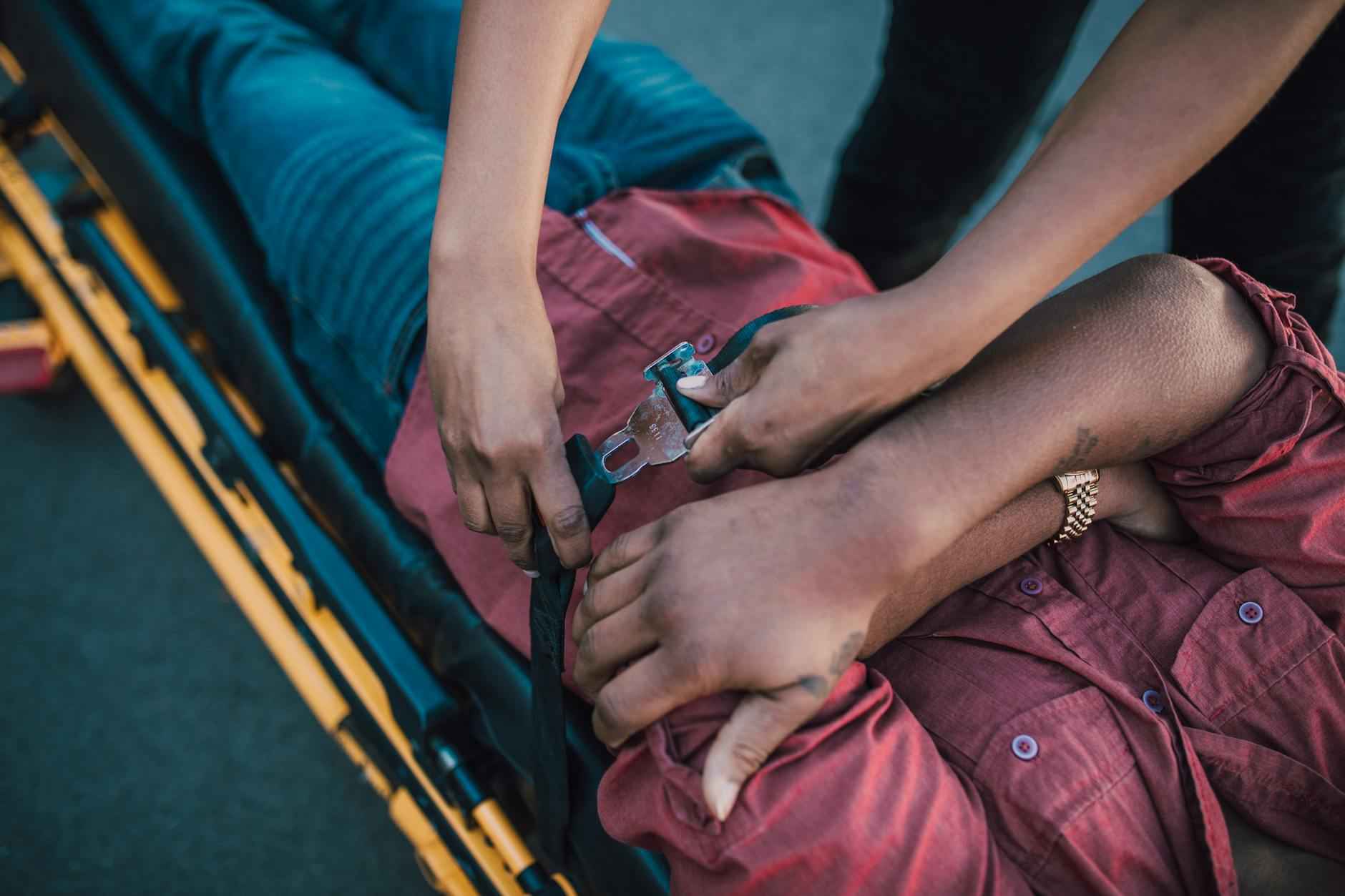
Staying Calm During an Emergency
is like, one of those things that sounds easy but is super hard to actually do. When the chips are down, and everything feels like it’s falling apart, keeping your cool is crucial. You might be thinking, “Why should I even care about this?” Well, let me tell you, panicking won’t help anyone, especially you. So, take a deep breath, and remember, you got this!
First off, let’s be real, when an emergency strikes, your brain kinda goes haywire. It’s like a hamster on a wheel, running but not really getting anywhere, you know? So, understanding how to stay calm is essential. Here are some tips that might actually help you, or at least make you feel a bit better:
- Breathing Techniques: Seriously, just breathe. Inhale for a count of four, hold it for four, and exhale for four. Repeat this a couple of times and you might just feel like a human again.
- Focus on the Present: It’s easy to freak out about what might happen next. But try to focus on what you can control right now. Maybe it’s just me, but worrying about the future never really helps.
- Talk Yourself Through It: Sounds a bit silly, but talking to yourself can be comforting. You can say things like, “I can handle this” or “It’s gonna be okay.” It’s like giving yourself a pep talk.
Now, let’s chat about contacting medical professionals. Don’t hesitate to call for help when you need it. I mean, that’s what they’re there for, right? They are trained to handle emergencies, and they can guide you through the process. Just remember to listen to them! But, here’s a thought, what if you can’t find your phone? Panic mode activated! So, maybe keep a list of important numbers handy, just in case.
Also, if you’re in a situation where you need to act fast, try to think clearly. It’s like being in an action movie, but without the cool soundtrack. You might want to have a plan in place for emergencies, because trust me, when the time comes, you won’t want to be scrambling around like a chicken with its head cut off.
In case you’re wondering, here’s a quick table of things you can do to prepare:
| Preparation Steps | Description |
|---|---|
| Emergency Contacts | Keep a list of important numbers in your wallet or on your phone. |
| First Aid Kit | Have a well-stocked first aid kit ready to go. |
| Know Your Exits | Make sure you know the quickest way out of your house or building. |
In conclusion, staying calm during an emergency is a skill that takes practice. It’s not just about you; it’s about everyone around you, too. So, be prepared, stay calm, and remember, you can handle whatever comes your way. And if all else fails, just breathe and repeat to yourself, “I got this!”
Breathing Techniques
are often overlooked, but they can be a game changer when it comes to managing stress and anxiety. Not really sure why this matters, but it’s like having a secret weapon in your back pocket. Seriously, who wouldn’t want that? So, let’s dive into the world of breathing and see how it can help you chill out.
First off, let’s talk about the basics: Inhale, exhale, repeat. It’s like a mantra, but for your lungs. I mean, how simple is that? You don’t need a degree in rocket science to understand how to breathe, right? Just focus on taking deep breaths. It’s like filling a balloon; you don’t want to pop it, but you want it full enough to float. Deep breathing techniques can lower your heart rate and help you feel more relaxed.
- Diaphragmatic Breathing: This is the fancy term for breathing deeply. You place one hand on your chest and the other on your belly. When you breathe in, your belly should rise, not your chest. It’s like magic, but not really.
- 4-7-8 Breathing: Inhale for four seconds, hold for seven, and exhale for eight. It sounds complicated, but trust me, it works wonders. You might feel like you’re about to pass out the first time, but that’s normal, I think.
- Box Breathing: Breathe in for four, hold for four, breathe out for four, and hold again for four. It’s like drawing a box with your breath. Who knew geometry could be calming?
Now, why should you bother with these techniques? Well, maybe it’s just me, but I feel like life throws enough curveballs at us without adding anxiety to the mix. Breathing can help you regain control when everything feels like it’s spiraling out of hand. Plus, it’s free! Like, who doesn’t love free stuff?
Let’s not forget the science behind it. When you breathe deeply, it sends a message to your brain that everything is okay. It’s like your brain is saying, “Hey, chill out, we got this!” And who doesn’t want to hear that during a stressful moment? You can practice these techniques anywhere, whether you’re stuck in traffic or waiting in line at the grocery store. Just don’t look weird while doing it, okay?
Here’s a quick reference table for your breathing techniques:
| Technique | Steps | Benefits |
|---|---|---|
| Diaphragmatic Breathing | Hand on belly, breathe deeply | Reduces tension |
| 4-7-8 Breathing | Inhale 4s, hold 7s, exhale 8s | Helps with sleep |
| Box Breathing | Inhale 4s, hold 4s, exhale 4s, hold 4s | Improves focus |
In conclusion, are not just for yoga classes or meditation retreats. They’re practical tools you can use in your everyday life. So the next time you feel overwhelmed, just remember to breathe. It’s like hitting the reset button on your brain. Who knew something so simple could be so powerful? Give it a shot and see what happens!
Contacting Medical Professionals
is like having a lifeline during those frantic moments when everything seems to go haywire. So, don’t hesitate to call for help when you need it. Medical professionals are trained to handle emergencies, and they can guide you through the process. Just remember to listen to them! But, like, what if you’re in the middle of a panic attack? It’s super easy to forget that they’re there to help you, right?
When you’re in a tight spot, your brain might just turn to mush. I mean, who can think straight when your heart is racing and you’re sweating bullets? So, here’s a tip: always have the emergency number saved on your phone. It’s a lifesaver, trust me! But, if you’re anything like me, you probably have a million contacts and can’t remember which one is which. So, maybe write it down too? Just in case!
- Stay Calm: Easier said than done, right? But seriously, take a deep breath. You don’t want to sound like a complete mess when you call.
- Provide Clear Information: When you finally get someone on the line, make sure you tell them what’s going on. They can’t read your mind, after all! Describe the situation, your symptoms, or whatever is happening.
- Follow Instructions: This one’s crucial. They might tell you to do something that seems weird or counterintuitive, but just go with it. They’re the professionals for a reason!
And let’s not forget about the importance of staying connected. If you’re with someone else during an emergency, make sure they’re on the same page. It’s not fun trying to explain everything to your friend while you’re freaking out. So, maybe have a little emergency plan in place, like who’s calling the ambulance and who’s keeping the patient calm. Teamwork makes the dream work, right?
| Emergency Number | Service |
|---|---|
| 911 | General Emergencies |
| 1-800-222-1222 | Poison Control |
| Local Urgent Care | Non-Life Threatening Issues |
But here’s the kicker: sometimes, you might not even know if it’s a real emergency or not. Like, is a sprained ankle worth a call? Or should you just walk it off? It’s all about knowing your body and trusting your gut. If something feels off, don’t just brush it aside. You could be saving yourself from a whole world of hurt.
In conclusion, contacting medical professionals during an emergency is critical. They can provide the guidance you need when everything feels like it’s spiraling out of control. So, don’t be shy! Make that call, and remember to listen closely to their advice. You got this! And if you don’t, well, that’s what they’re there for!
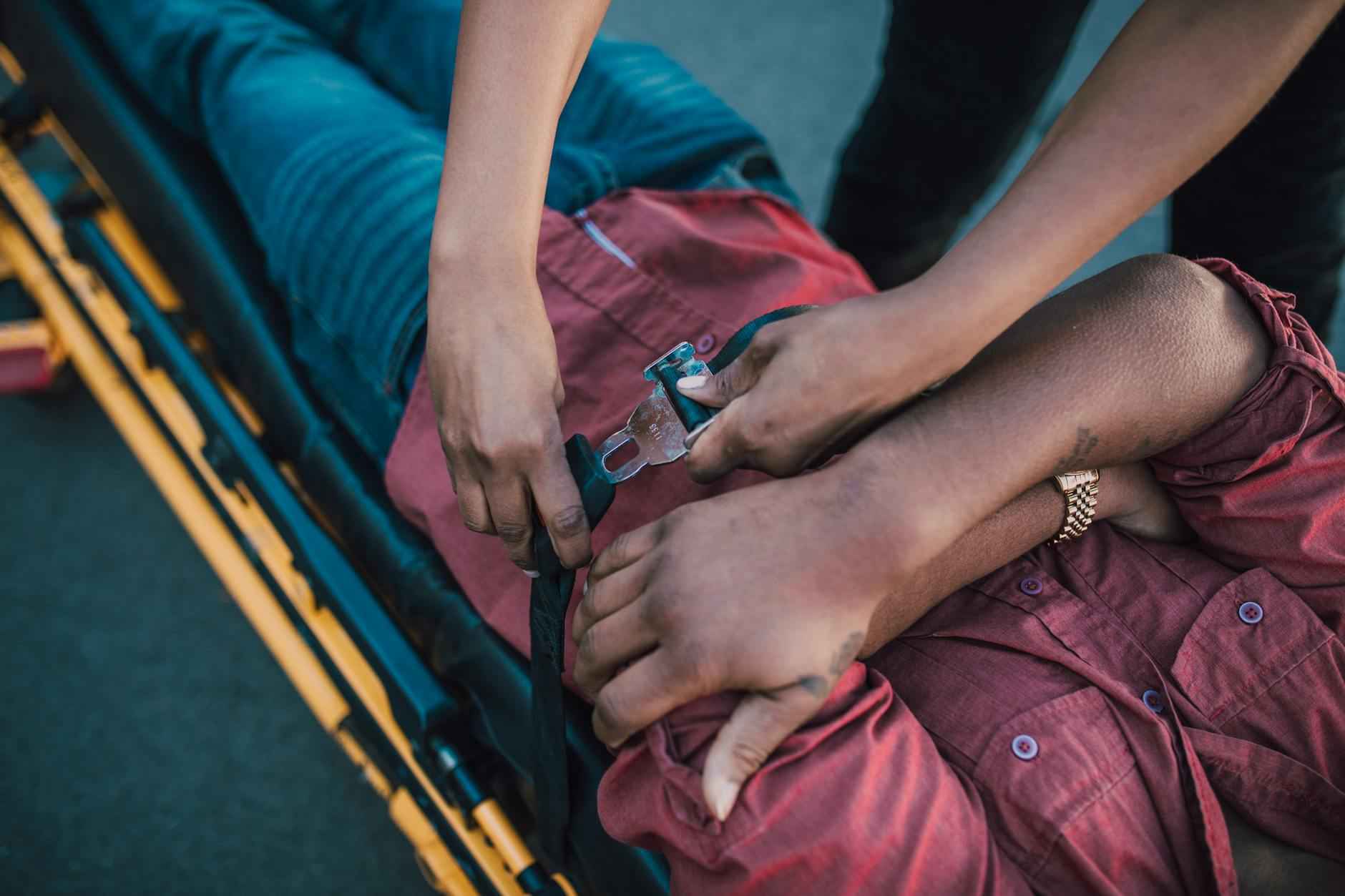
Conclusion
In wrapping things up, it’s really important to know how to deal with nighttime medical emergencies. Like, it’s not just about your own safety; it’s about the people who are around you too. You never know when someone might need your help, or when you might find yourself in a tricky situation. So, here’s the deal: being prepared can make all the difference. You might think you’re fine, but trust me, when the clock strikes midnight, things can get a little crazy.
First off, let’s talk about staying calm. Easier said than done, right? But panicking won’t do you any good. Take a deep breath, and remind yourself that you’ve got this. Remember, when you’re in a tough spot, it’s like your brain turns to mush. So, having a plan can really save the day. And if you’re not sure what to do, just call for help. Medical professionals are trained for this stuff, and they can help guide you through the chaos.
Now, another thing that’s super important is knowing your local emergency numbers. Seriously, it’s not fun scrambling around looking for them when you’re in a panic. Make a little cheat sheet and stick it on your fridge or something. You’ll thank yourself later, trust me. And if you have kids, make sure they know these numbers too. It’s all about that family safety.
When it comes to common nighttime emergencies, let’s not forget about car accidents. People tend to be more reckless after dark, which is just plain scary. I mean, who hasn’t seen someone driving like a maniac at 2 AM? It’s like they think they’re in a Fast and Furious movie or something. And then there’s falls and fractures, which happen more often than you’d think. Poor lighting can turn your living room into a death trap. Seriously, watch your step!
| Common Nighttime Emergencies | Examples |
|---|---|
| Car Accidents | Reckless driving, fatigue |
| Falls | Tripping, poor lighting |
| Medical Conditions | Asthma, heart issues |
And let’s not forget about those pesky medical conditions that just love to flare up at night. It’s like they have a schedule or something. You might think you’re all good, and then bam! Your body decides to throw a tantrum. So, having a first aid kit is a must. You never know when you might need some band-aids or antiseptic wipes. It’s like having a safety net for your boo-boos.
- Keep your first aid kit stocked!
- Know where your important documents are.
- Familiarize yourself with local hospitals and urgent care centers.
In the end, being prepared for nighttime emergencies is just smart. You don’t want to be that person who’s freaking out when something happens. So, take a moment to think about it. You’ve got this! Just remember, if you stay calm and have a plan, you’ll be fine. Not really sure why this matters so much, but hey, better safe than sorry, right?
Frequently Asked Questions
- What should I do in case of a nighttime emergency?
First, stay calm and assess the situation. If it’s a medical emergency, call your local emergency number immediately. Make sure to provide clear information about your location and the nature of the emergency.
- How can I find emergency medical services at night?
Familiarize yourself with local hospitals and urgent care centers beforehand. Keep their contact numbers handy so you can quickly reach out when needed. Using a map app can also help you locate the nearest facility in real-time.
- What items should I include in my first aid kit?
Your first aid kit should contain essentials like band-aids, antiseptic wipes, gauze, adhesive tape, pain relievers, and any personal medications. It’s like having a mini pharmacy ready for those unexpected boo-boos!
- Why are nighttime emergencies more common?
Nighttime can lead to increased accidents due to factors like fatigue, impaired visibility, and sometimes even reckless behavior. It’s crucial to be extra cautious during these hours to avoid potential mishaps.
- How can I stay calm during an emergency?
Practice deep breathing techniques to help manage anxiety. Inhale deeply through your nose, hold for a moment, and exhale slowly through your mouth. This can help clear your mind and focus on what needs to be done.
